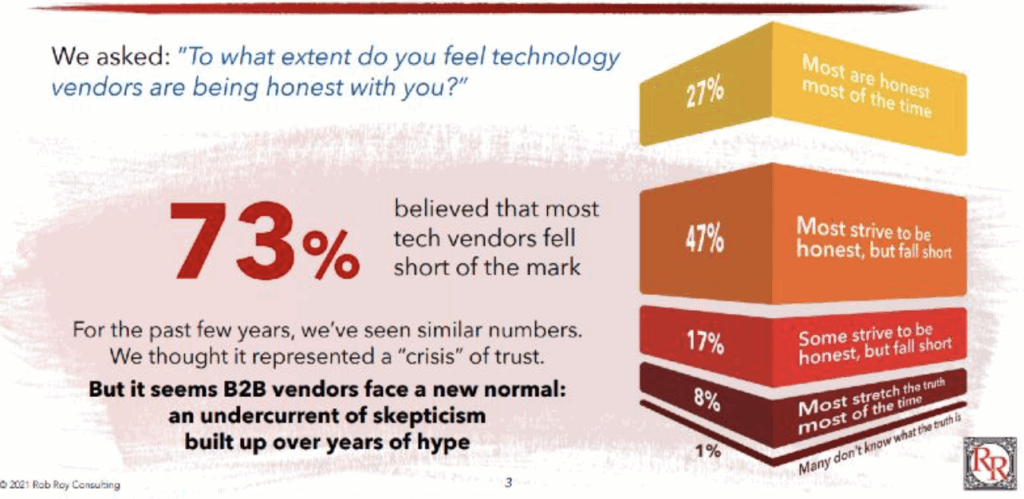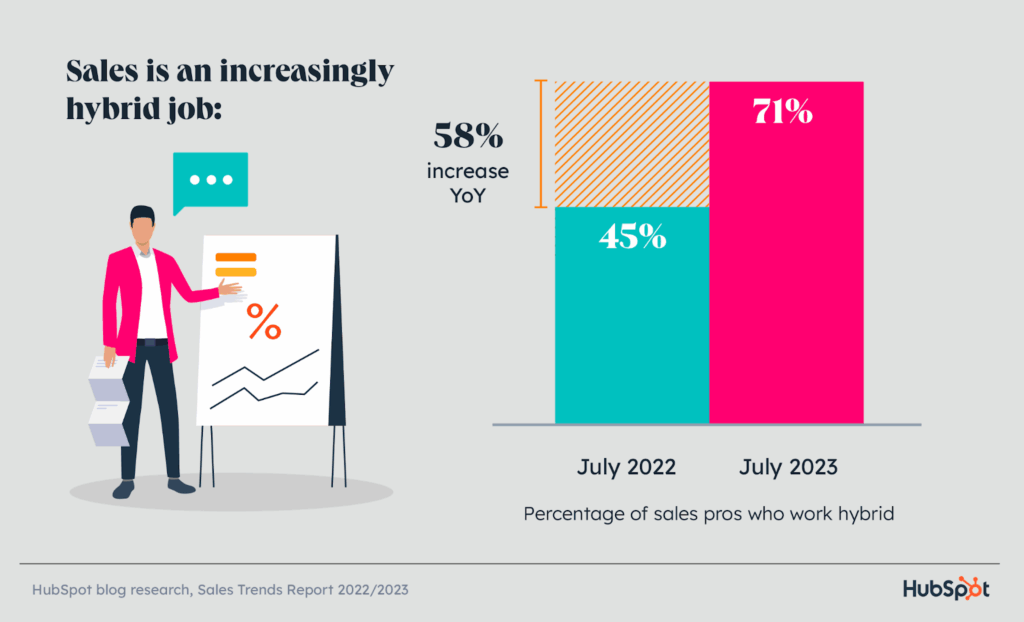Why Soft Skills Matter More Than Ever in SaaS Sales Hiring
Published on Jul 10, 2025

Product knowledge and industry expertise have been and always will be essential for SaaS sales success. But we’ve recently hit a tipping point where soft skills matter more than ever. In fact, some experts believe that they’ve actually usurped traditional hard skills and go further in closing deals.
For this post, I’ll break down the rationale behind the undeniable importance of soft skills and mention some specific traits to target when considering potential candidates.
The Buyer Now Does Most of the Research
In the past, buyers had limited information to go on when researching products and relied heavily on a salesperson’s input. But with the combination of search engines, social media, AI, and countless other digital resources, the vast majority of research is now done without talking to a rep.
This means that the modern SaaS buyer is more empowered than ever and is unlikely to simply take what a rep says at face value. Instead, they’re likely to have a barrage of questions and want to build a relationship with a rep before committing to a purchase.
Therefore, simply listing out a set of features and benefits just won’t cut it, especially in today’s hyper-competitive SaaS sales climate. Instead, a salesperson needs to possess critical soft skills like active listening, critical thinking, empathy, and clear communication to thrive. Also, it’s vital that they’re adaptive enough to tailor their sales pitch to the specific needs of each buyer to show how a product fits in with their unique workflows.
Skepticism is the New Norm for Modern SaaS Buyers
Besides being more empowered than ever, you could make the argument that the collective skepticism among today’s SaaS buyers is at an all-time high. This is largely due to the ease with which buyers can perform self-research, as well as many brands offering a lot of promises but failing to deliver in the long run.
Here’s some telling research that illustrates this current trend perfectly.
“Nearly three-quarters (73%) of buyers said they believe ‘most vendors fall short’ of the honesty mark. More specifically, when the survey asked, ‘To what extent do you feel technology vendors are being honest with you?’ here’s how the answers stacked up:
- 27% said most vendors are honest most of the time;
- 47% said most vendors strive to be honest but fall short;
- 17% said some vendors strive to be honest but fall short;
- 8% said vendors stretch the truth most of the time; and
- 1% said vendors don’t know what the truth is.”
To break through the skepticism, salespeople need to take a consultative rather than an aggressive “buy now” approach, where they teach buyers how their SaaS product can practically benefit them and be comfortable with handling friction. It’s also important to back up claims with quantifiable evidence from testimonials and case studies, and have the finesse to build authentic rapport.
SaaS Sales Cycles Are Longer and More Complex Than Ever
First off, let me say that the SaaS sales cycle length can vary considerably from one company to another. A brand that’s selling a basic, relatively affordable SaaS product, for example, will likely have a shorter sales cycle than one that’s selling a robust, enterprise solution. With that said, HubSpot reports that the average SaaS sales cycle across the board is around 84 days.
Soft skills matter when navigating a lengthy SaaS sales cycle because a rep needs to build trust with a buyer (often with multiple stakeholders involved), actively listen to their needs, and identify the best solution based on key pain points.
In other words, a rep can’t just offer a demo, make the sale, and be done. They need to have the right soft skills to fluidly navigate a lengthy sales cycle and establish a genuine connection. Simply knowing the product inside and out just isn’t enough these days.
Much of SaaS Sales is Now Done Remotely or Hybrid
In a matter of months, COVID dramatically altered the workplace landscape, forcing record numbers of professionals in countless industries to work from home. And while many SaaS salespeople have returned to working in-house, a large number continue to work remotely or hybrid.
By the way, if you’re interested in the pros and cons of remote vs in-office SaaS sales teams, I suggest reading this article we wrote.
For perspective, a HubSpot study found that between July 2022 and July 2023, there was a 26% increase in the number of SaaS salespeople working hybrid to a total of 71%.
So what does this mean within the context of this article? It means that today’s SaaS salespeople need to be able to communicate effectively digitally, which can involve a variety of mediums, including email, phone, live chat, messenger, or video call.
While there may still be some face-to-face interaction, it’s never been more important for salespeople to be master digital communicators, where they nail the right tone, perfect their timing, understand “digital body language,” and generally have a high level of emotional intelligence. Besides that, they need to be adaptable enough to communicate with buyers across numerous mediums and cater to those with short attention spans.
A Recap of Why Soft Skills Matter
Again, I’m not trying to say that traditional hard skills like product knowledge and industry expertise are antiquated. They’ll always be important.
The core takeaway here is that we’ve recently hit a point where soft skills like active listening, critical thinking, empathy, clear communication, and adaptability have become just as if not more important than hard skills. For a SaaS salesperson to thrive in today’s competitive environment, they must possess these critical soft skills.
That’s why this should be a focal point when evaluating candidates, where you should put these types of soft skills front and center.
If you’re looking for a proven tool for identifying top-tier candidates, check out the Sales Skills Assessment. It provides in-depth insights into a candidate’s strengths and weaknesses and can help you build a more adept team of professionals with 95% accuracy.

